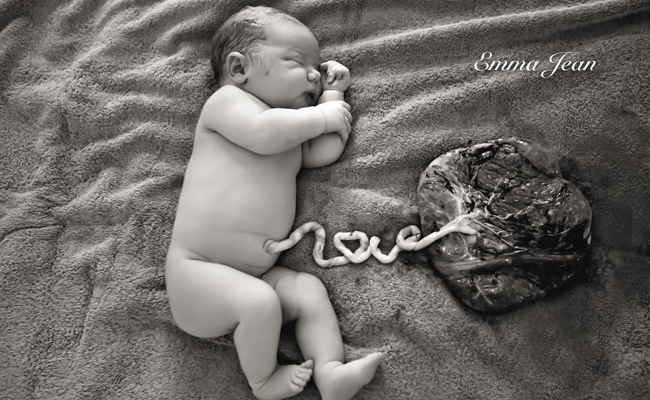You are here
10 Amazing Facts About the Placenta
October 2020
The placenta is the lifeline between a mom and her baby. It is the organ where the connection between them is first established. Scientists consider the placenta to be the least understood human organ and yet one of the most important organs in the body. It influences the health of a woman and her baby during and even after pregnancy. In honor of this incredible organ, we list 10 amazing facts about the placenta.

- Small but mighty - Shaped like a parachute, the placenta is a highly specialized organ that helps support the development of your baby. The average placenta is 9 inches across, about 1 inch thick, and typically weighs just over 1 pound. Blood from both mom and baby pass through the placenta but never mix. At full term, about 20 ounces of mom’s blood passes through the placenta every minute. That alone is amazing (and also explains why pregnancy is so exhausting).
- One organ, multiple functions - Your developing baby doesn’t eat or breathe and relies solely on its mom for nutrients and oxygen. The placenta acts as the baby’s lungs to supply oxygen and remove carbon dioxide. It also acts as baby’s kidneys to filter waste products out of the bloodstream.
- The placenta is a maternal-fetal organ - Most of the placenta develops from the fertilized egg, which means most of the placenta genetically matches the baby. The placenta begins to form right after the fertilized egg implants in the uterus wall around 6 to 7 days after conception, and it continues to grow with your baby to supply its growing needs. The placenta is attached to the uterine wall by interlocking fingers from both the mother and the baby - this thickened area of the uterine wall is called the decidua, and thus the very base of the placenta is made of maternal tissue.
- The placenta is also a gland - The placenta acts as a gland that secretes hormones during pregnancy which play an essential role in supporting your growing baby and preparing your body for motherhood.
- The placenta is an immune mediator – The placenta helps the immune systems of mom and baby to talk to each other without having a fight. Throughout pregnancy, the placenta works to prevent mom’s body from recognizing the baby as foreign and attacking it. During the 3rd trimester, the placenta allows mom’s antibodies to pass to the baby, giving your baby a starter immune system, and this protection lasts for up to 6 months after birth.
- Identical twins may share a placenta - Fraternal twins develop from two separate fertilized eggs, and will always have two placentas. But the number of placentas between identical twins is determined by whether the fertilized egg splits before or after the formation of the placenta.
- You carry stem cells from your baby - Stem cells from your baby can cross the placenta, and they seem to target sites where mom has an injury. Even years later, a tiny number of cells from previous pregnancies can be found in a mom’s skin, organs, and bone marrow. This phenomenon is called "fetomaternal microchimerism".
- The only disposable organ - A placenta will grow in every pregnancy to support the growth of your baby. Once its mission is complete, the placenta is delivered after the birth of the baby, which is why it is known as “the afterbirth”.
- The placenta prepares your body to breastfeed - The placenta produces a hormone that suppresses the production of breast milk. Once the placenta is delivered, mom’s body gets the signal that it’s time to produce milk.
- The placenta can help us fight cancer - The placenta has a unique ability to grow and infiltrate mom’s body without being attacked by mom’s immune system. This ability to evade the immune system is highly regulated, and the placenta knows to stop infiltrating before causing harm to the mother. Researchers hope that a better understanding of the how the placenta works will help us to fight cancers that evade the immune system.
Not only is the placenta an amazing organ during pregnancy, moreover its benefits extend beyond pregnancy and can offer hope that will last a lifetime. Unless you decide to donate or store stem cells from your placenta, it will be disposed of as biological waste.



 Liat Ben-Senior holds an MBA and MSc in Human Genetics from the Sackler School of Medicine. She has over 19 years experience in Marketing and Digital Marketing in the field of Biotech and Life Sciences. Her scientific background includes immunology and molecular biology research, both in academia as well as industry. Her management background includes business development and commercialization of early stage medical devices, cellular, and small molecule therapies. For over a decade, Liat worked with
Liat Ben-Senior holds an MBA and MSc in Human Genetics from the Sackler School of Medicine. She has over 19 years experience in Marketing and Digital Marketing in the field of Biotech and Life Sciences. Her scientific background includes immunology and molecular biology research, both in academia as well as industry. Her management background includes business development and commercialization of early stage medical devices, cellular, and small molecule therapies. For over a decade, Liat worked with